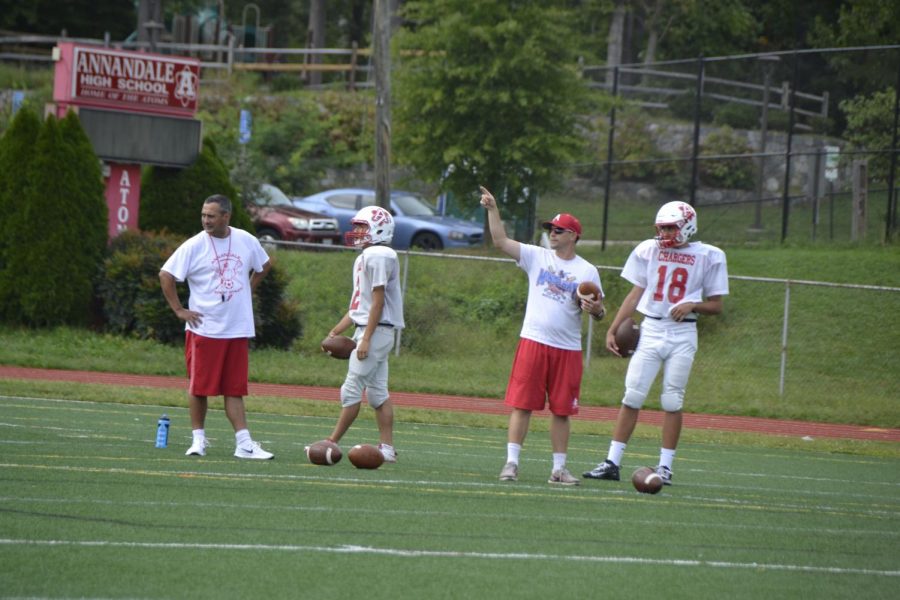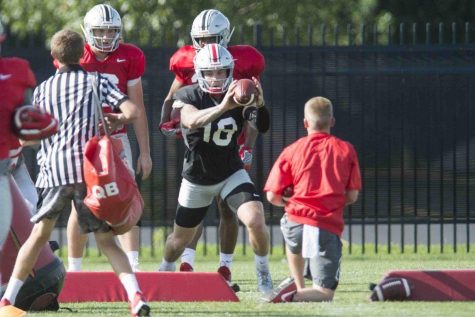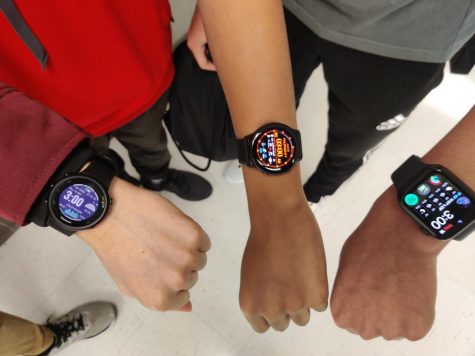6 ways to avoid concussions
Head football coach Mike Scott and junior Matt Dinh (left) and Coach Chris Bagot and junior Devin Gill (right) work on quarterback drills.
Despite the difficulty of being able to effectively avoid concussions in contact sports, there are precautionary measures that can be taken in advance in order to limit the possibility of one occurring. As well as precautionary measures, there are safety steps to take afterwards in the case that a concussion occurs.
1 Wear proper equipment
Wear the proper protective gear for your sport. Make sure your equipment fits properly and is worn correctly. The equipment should also be well maintained and up to date with any and all sports regulations.
2 Know the sport you are playing Learn and use proper playing technique for your sports. Play safely and practice with caution at all times. Many concussions occur not only during games but during practice and drills as well. Some organizations have also limited the number of contact practices permitted per season.
3 Check playing environment
Make sure to analyze playing environment before participating in practice or a game to ensure safety. Make sure that there are no uneven surface areas or deep holes on playing fields. In addition to this, make sure that end posts are padded.
4 Complete concussion education
In addition to completing a yearly physical to participate in sports, it is imperative to complete concussion education online. Doing so will allow student-athletes and parents to know which steps and protocol to take if a concussion does occur at practice or during a game.
5 Know the symptoms of a concussion
It is essential to be educated about and understand the symptoms of having what could potentially be a concussion. Symptoms can include but are not limited to; persistent or severe headache, blackout, poor balance, nausea, mental confusion and memory loss. If a student-athlete has any of these symptoms they should speak with an athletic trainer, doctor or coach as soon as possible in the case that they do have a concussion.
6 Recover Properly to Avoid Future Implications
It is also imperative to recover properly. Always follow protocol and steps to recovery as instructed by athletics trainers. Doing this will reduce the risk of long term damage and lessen the extent of lingering side effects.

Senior Jude Nanaw is the current Co-Editor in Chief of The A-Blast. He has been on staff for four years where in previous years he has held the positions...

Ethan Zimmerman is on his third year on The A-Blast. He is currently the Distribution Manager and was previously the Sports Editor. He plays baseball...

Senior Binqi Chen is the current Co Editor-in-Chief of The A-Blast. She has been on staff for four years and previously served as the In-Depth Editor as...





